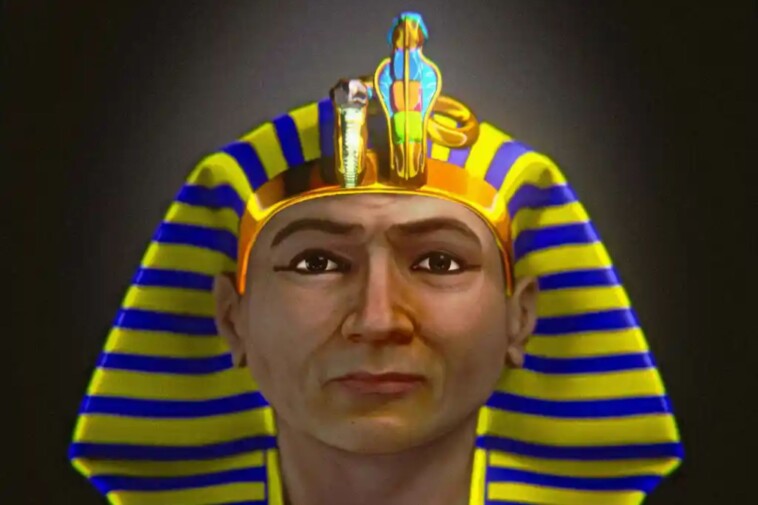
This pharaoh is under wraps no longer.
Archeologists and graphics experts have recreated the facial features of one of Egypt’s most significant pharaohs, Amenhotep I, who ruled during the 18th Dynasty around 1,500 BCE, or 3,500 years ago.
Cicero Moraes, the Brazilian graphics expert who also recreated the looks of descendant Amenhotep III, noted that his ancestor likely looked different than how he was depicted in treasures and statues of the time, according to the Sun.
Specifically, the enshrinements failed to capture his “overbite” and showed that the king was “more projected in the chin region.”
However, “the statues of Amenhotep I are compatible in the nose region,” Moraes said of the “dignified” recreated face, which also accounted for his head shape while wearing the iconic, blue and gold “names” pharaoh headdress.
Amenhotep’s details were based on a 2021 report in which the pharaoh had been “virtually unwrapped” through a CT scan.
“The 2021 study did not indicate a cause of death, but stipulated his age at death as approximately 35 years,” Cicero’s co-author, archaeologist Michael Habicht, said of the 5-foot-5 ruler.
“His teeth were in good condition” and “his hair was coiled,” added Habicht, who noted “a series of postmortem injuries” most likely due to tomb robbers or his mummified remains becoming re-wrapped.
Amenhotep potentially took the throne as just a child and ruled with the aid of his mother, Ahmose-Nefertari, according to the National Museum of Egyptian Civilization.
His reign was believed to have lasted between two to three decades as he led Egypt on campaigns to nearby Libya and Nubia.
Amenhotep I may have also played a large role in creating the Valley of the Kings — a sacred resting place for pharaohs, according to the Sun.







